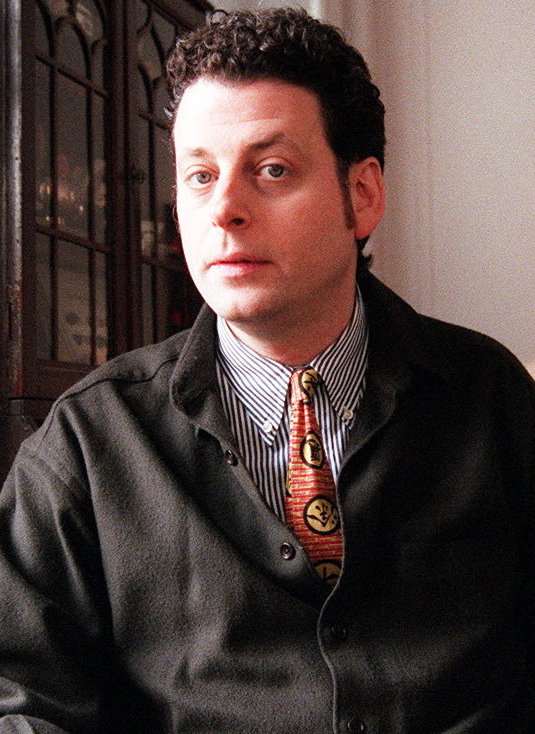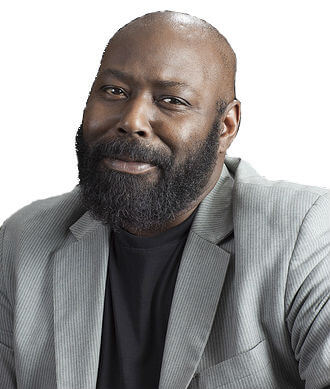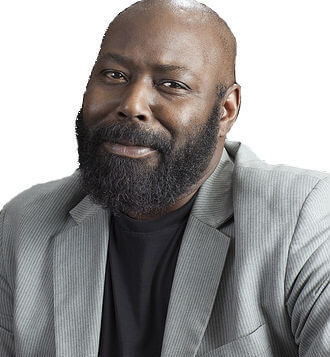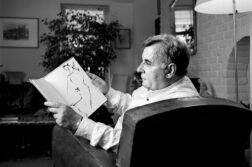IN KEEPING WITH our annual custom, we remember some of the LGBT activists, writers, performers, educators, and artists who made a difference in their lives and who died last year from a range of causes, including the Covid-19 pandemic. All dates are in 2020 unless otherwise indicated.
Activists
 Deborah A. Batts, the first openly gay or lesbian African-American federal judge, died on February 3rd at age 72. She was also the first African-American tenured faculty member at Fordham Law School. She had been nominated in 1994 by President Bill Clinton for the Southern District of New York and was easily confirmed. Born in Philadelphia, she received her law degree from Harvard, where she was on the editorial board of the Harvard Civil Rights–Civil Liberties Law Review, and her portrait was unveiled at Harvard Law School in 2001. She is survived by her wife, Dr. Gwen Zornberg.
Deborah A. Batts, the first openly gay or lesbian African-American federal judge, died on February 3rd at age 72. She was also the first African-American tenured faculty member at Fordham Law School. She had been nominated in 1994 by President Bill Clinton for the Southern District of New York and was easily confirmed. Born in Philadelphia, she received her law degree from Harvard, where she was on the editorial board of the Harvard Civil Rights–Civil Liberties Law Review, and her portrait was unveiled at Harvard Law School in 2001. She is survived by her wife, Dr. Gwen Zornberg.
Harry Britt, longtime member of the San Francisco Board of Supervisors, died on June 24th at age 82. Born in Port Arthur, Texas, he received theology degrees from Southern Methodist University and the University of Chicago, becoming an ordained Methodist minister in Chicago. By the time he was in his early thirties, his marriage had dissolved and he left the church. He came out in the early 1970s, moved to San Francisco, and became Harvey Milk’s protégé, working on Milk’s campaigns for supervisor and helping to organize the San Francisco Gay Democratic Club. Following Milk’s assassination in 1979, he was appointed to the Board of Supervisors and subsequently re-elected four times.
Elizabeth “Babs” Conant, professor and activist, died on August 23rd at age 91. Born in Brooklyn, she received a doctorate from Radcliffe College and lived in Buffalo, New York. A life-long political activist, she worked to ensure that classrooms and hallways were free of anti-LGBT slurs and harassment, and she promoted gay-straight student alliances. She was a long-time member of pflag and gave presentations to elementary and high school teachers on keeping LGBT students safe. She taught biology at universities worldwide and the was the recipient of many honors from the LGBT community. She is survived by her wife, Camille Cox.
Vickey Gibbs, activist pastor, died on July 10th at age 57. Born and raised in Texas, she received a master’s degree in divinity from the Pacific School of Religion in Berkeley and was ordained by the Metropolitan Community Church (MCC) in 2014. When she became the associate pastor at Resurrection MCC in Houston, she was one of only a few African-American congregants. Through her personality and charisma, she helped build a large, racially diverse, politically engaged congregation. She led marches and worked with the ACLU in 2018 to protest the treatment of immigrants at the Mexican border. She is survived by her wife, Cassandra White, director of the church’s gospel choir, and their children.
Larry Kramer, AIDS activist, playwright, and novelist, died on May 27th at age 84. He was remembered by Lawrence D. Mass in the September-October issue.
Phyllis Lyon, lesbian rights pioneer and cofounder of the Daughters of Bilitis, died on April 9th at age 95. She was remembered by Martha E. Stone in the July-August issue.
Vincent McCarthy, lawyer and activist, died on January 29th at age 79. Grandchild of Irish immigrants, he was born and grew up in Boston and graduated from Harvard Law School. In the early 1970s, he came out as one of the first openly gay partners in a major U.S. law firm, Boston’s Hale and Dorr. He cofounded several LGBT organizations: the Human Rights Campaign, the Massachusetts Lesbian and Gay Bar Association, and the first-of-its-kind Governor’s Advisory Committee on Gay and Lesbian Youth. In the early 1980s, a meeting that McCarthy coordinated with other gay and lesbian graduates and Harvard’s president led to a university-wide nondiscrimination policy. He is survived by his children.
Stacey Park Milbern, activist, died on May 19th on her 33rd birthday. Born in Korea, she was adopted and grew up in a conservative family in South Carolina. When she came out, she knew she would have to move out. Relocating to Oakland, California, she received an MBA from Mills College. Milbern, who had muscular dystrophy and used a wheelchair for most of her life, was instrumental in launching the disability justice movement, working to secure equal access to medical care for LGBT people with disabilities. She organized an effort to promote the 2020 documentary Crip Camp: A Disability Revolution.
Monica Roberts, creator of the TransGriot blog, died on October 5th at age 58. Her blog was uniquely dedicated to chronicling the African-American trans experience. She helped to bring national attention to the ongoing murders of transgender women. Born in Houston, she graduated from the University of Houston and was a member of that city’s LGBT Advisory Board. The recipient of many local and national awards, including a glaad Media Award in 2018, she wrote for a variety of national and local magazines and websites. In 2019, she received Equality Texas’ first transgender activist of the year award.
David Scondras, Boston’s first openly gay city councilor, died on October 21st at age 74. He served five two-year terms from 1983 to 1993. A community organizer dedicated to helping low-income Bostonians and the LGBT community, he fought for rental protections even after his narrow defeat in 1993. He founded and led Search for a Cure, a nonprofit AIDS organization. Born in Lowell, Massachusetts, he received an undergraduate degree from Harvard and a master’s degree in economics from Northeastern, where he was also an instructor. He is survived by his partner, Robert Krebs.
Henry van Ameringen, philanthropist, died on September 9th at age 89. In 1967, he founded the H. van Ameringen Foundation. A few years into the AIDS crisis, he began funding hiv/ aids and LGBT causes, and was among the first openly gay philanthropists to do so. Despite his low-key style, it is estimated that he gave away some $200 million in his lifetime. Born in South Orange, New Jersey, he grew up in a wealthy family that gave generously to mental health and cultural causes. Graduating from Georgetown’s School of Foreign Service, he lived in Paris for a few decades while working in the family business, International Flavors and Fragrances, retiring as an executive with the company. He is survived by his husband, T. Eric Galloway, with whom he formed the Galvan Foundation.
Artists and Performers
Ruth Anderson, composer and electronic music pioneer, died on November 29th, 2019, at age 91. Born in Kalispell, Montana, she received her degree in flute performance and composition from the University of Washington and was one of the first women admitted to Princeton’s graduate program in composition. In 1968, she founded the Hunter College Electronic Music Studio, one of the few of its kind established and directed by a woman. She was particularly known for tape manipulation, using snippets of spoken word that she set to music. Her solo album Here was released in early 2020 by Arc Light Editions. She is survived by her wife, composer Annea Lockwood.
 Maurice Berger, curator and writer, died on March 22nd at age 63. He was raised by his parents in a Lower East Side housing project; his mother was openly hostile toward their Puerto Rican and African-American neighbors. Berger was always conscious of the role of race in determining one’s fate in life. He received a doctorate in art history from CUNY, taught at Hunter College, and in 1987 co-curated Race and Representation, one of the first exhibitions on racism as an issue for artists and filmmakers. His 1990 essay “Are Art Museums Racist?” in Art in America was widely discussed, as was his 1999 book White Lies: Race and the Myths of Whiteness, which is being republished this year. He is survived by his husband, Marvin Heiferman, also a curator and writer.
Maurice Berger, curator and writer, died on March 22nd at age 63. He was raised by his parents in a Lower East Side housing project; his mother was openly hostile toward their Puerto Rican and African-American neighbors. Berger was always conscious of the role of race in determining one’s fate in life. He received a doctorate in art history from CUNY, taught at Hunter College, and in 1987 co-curated Race and Representation, one of the first exhibitions on racism as an issue for artists and filmmakers. His 1990 essay “Are Art Museums Racist?” in Art in America was widely discussed, as was his 1999 book White Lies: Race and the Myths of Whiteness, which is being republished this year. He is survived by his husband, Marvin Heiferman, also a curator and writer.
Howard Cruse, pioneering cartoonist, died on November 26th, 2019, at age 75. Born in rural Alabama, he became a fan of the cartoons in his local paper, and drew cartoons for his high school newspaper. After studying drama at Birmingham-Southern College, he worked at local TV stations in art direction and created cartoons for the Birmingham Post-Herald, later moving to New York, where he became part of the underground comic book scene. He founded and edited Gay Comix, created the Wendell series for The Advocate, and was the author of dozens of collections of comics. His graphic novel Stuck Rubber Baby, based closely on his life, was reissued in 2020 in a 25th anniversary edition. He is survived by his husband, Eddie Sedarbaum, and his daughter.
Luther Price, experimental filmmaker, died on June 13th at age 58. He received a bachelor’s degree in fine arts from Mass. College of Art and Design and taught there after graduation. His first solo show was staged in 1999 in SoHo, and his work was highly praised at the 2012 Whitney Biennial. His films were made by manipulating the filmstrip surface both physically and chemically, using paint, ink, or dirt, and scratching or scraping it, with results that critics have called moving, disturbing, oblique, strange, and dazzling. He was perhaps best known for his 13-minute film “Sodom” (1989). To create it, he scavenged dumpsters near X-rated cinemas in Boston to find discarded gay porn; the soundtrack was a Gregorian chant played backward.
Tyrone Proctor, choreographer and dancer, died on June 5th at age 66. Born and raised in Philadelphia, where he learned to dance, he moved to L.A. after high school graduation in a successful bid to join the new TV show Soul Train. He developed the dance style he called “waacking” (previously known as “punking”), inspired by underground gay clubs, drag queens, and Golden Age Hollywood icons. After a successful career with Soul Train, he moved to New York and performed with the dance group Breed of Motion, where he earned the title “Grandmother of Voguing.”
Ellen Shub, photojournalist, died on December 18th, 2019, at age 73. An award-winning documentarian of peace and social justice movements, in 1973 she started exhibiting her work, which appeared in many newspapers, as cover art on book jackets, in feminist journals, and in other outlets. She was especially known for juxtaposing images of famous activists with those who usually go unrecognized. She was born in New Jersey, received a master’s in education from the Harvard Graduate School of Education, and lived in Newton, Mass. She is survived by her partner, Kathy J. Seltzer, and her son.
Thomas Sokolowski, art museum curator, died on May 6th at age 70. Born and raised in Chicago, he attended the Institute of Fine Arts at NYU, where he studied Italian Baroque art. Early in his career, he mounted some of the first AIDS-themed art exhibitions shown at any museum. In 1988, he was one of four founders of Visual AIDS, dedicated to using art to fight AIDS and supporting HIV-positive artists. In 1989, he cofounded “A Day Without Art,” an annual event when galleries and museums close or change their exhibitions. He held top-level positions at major art museums, including the Andy Warhol Museum, and at the time of his death was director of the Zimmerli Art Museum at Rutgers. He is the author of dozens of exhibition catalogs.
Charles Wuorinen, modernist composer, died on March 11th at age 81. Born in Manhattan to a well-to-do family, he began writing music when he was five. He took a master’s degree in music at Columbia, was a prolific composer, and received a Pulitzer Prize for his electronic work Time’s Encomium in 1970. In 1986, he received a MacArthur “genius” grant. He taught at a number of universities, where he was both “beloved and feared” by his students. In 2004, his opera Haroun and the Sea of Stories premiered at New York City Opera, and the next year he was commissioned to compose Brokeback Mountain, an opera based on the Annie Proulx short story. He is survived by his husband, Howard Stokar.
Playwrights, Directors, and Producers
Eric Bentley, director, theater critic, cabaret performer, translator, professor, and playwright, died on August 5th at age 103. Born in Lancashire, England, he received his undergraduate degree at Oxford and his doctorate at Yale, stating that he moved to the U.S. to flee from his “engulfingly religious mother.” He was best known among the theatergoing public for introducing the plays of Bertolt Brecht to American audiences. The recipient of many major awards, he was elected a Fellow of the American Academy of Arts and Sciences in 1969, the same year that he separated from his second wife and family and came out as gay. He wrote articles for Liberation magazine about being gay, and in 1972 he taught one of the first college courses about homosexuality in culture.
René Buch, theater impresario, died on April 19th at age 94. He was a cofounder, in 1968, of Manhattan’s Repertorio Español, and became its artistic director. The company was dedicated to presenting new works by Latin American playwrights and reimagining Spanish classics. His many awards include a lifetime achievement Obie in 2011. Born in Cuba, his father urged him to become a lawyer, and he received a doctorate in law from the University of Havana. After winning a Cuban playwriting competition, he moved to the U.S. in the early 1950s to attend Yale, where he received an MFA in playwriting. He was predeceased by his partner, Erik Wensberg.

Mart Crowley (born Edward Martino Crowley), playwright, died on March 8th at age 84. Born in Vicksburg, Mississippi, he graduated from the Catholic University of America in D.C., where he studied acting, and later moved to New York. He became an assistant to Natalie Wood, developing a lifelong friendship with her and her family. Inspired by a 1966 article in The New York Times titled “Homosexual Drama and Its Disguises,” and encouraged by Wood, he wrote The Boys in the Band, one of the first plays to portray gay life. It opened Off-Broadway in 1968, a few months before the Stonewall riots, ran for over 1,000 performances, and was made into a movie in 1970. The 2018 Broadway production won a Tony for Best Revival of a Play, and the cast reprised their roles for a Netflix film in 2020.
Walter Dallas, theatrical director and professor, died on May 3rd at age 73. Born in Atlanta, he was raised from infancy by his maternal aunt following his mother’s death. As a child, he often staged shows in the neighborhood, and received an MFA in directing from the Yale School of Drama. He was best known for his leadership, from 1992 to 2008, of Philadelphia’s Freedom Theater, a major African-American company, helping to raise the Philadelphia theater scene to national prominence. He directed more than two dozen world premieres, including August Wilson’s Seven Guitars, at the Goodman Theater in Chicago. He is survived by his husband, Paul Siler.
Jerry Herman, Broadway composer and lyricist, died on December 26th, 2019, at age 88. He was best known for mega-hits Hello, Dolly!, Mame, and Broadway’s first gay musical La Cage aux Folles. He won multiple Tony and Grammy awards and was inducted into both the Songwriter’s Hall of Fame and the Theatre Hall of Fame. Born in Manhattan and raised in Jersey City, his parents ran a summer camp that housed a theater. Intoxicated by the 1946 Broadway production of Annie Get Your Gun, he knew immediately what his life’s work would be, and went on to graduate from the University of Miami with a degree in drama. He is survived by his husband, Terry Marler. His memoir, titled Showtune, was published in 1996.
Gerald S. Krone, theater manager and producer, died on February 20th at age 86. Born in Memphis, he served in the Army during the Korean War and graduated from Washington University in St. Louis, later interning with the Royal Shakespeare Company. In 1967, when he was already an Off-Broadway producer, he became part of an interracial trio that cofounded the Negro Ensemble Company (NEC). Two years later, the NEC received a Special Achievement Tony Award. Between its founding and 1981, when Krone began to work in television, three NEC shows transferred to Broadway, one of which, The River Niger, won a Tony for Best Play in 1974. He is survived by his partner, Ivan Kaminoff.
Terrence McNally, Tony-award winning playwright, died on March 24th at age 81. He was remembered by Raymond-Jean Frontain in the July-August issue.
Writers and Educators
George Bakan, editor of the Seattle Gay News (SGN), died at his desk on June 7th at age 78. Born and raised in Seattle, he was a Mormon missionary in France, drafted into the Navy during the Vietnam War, and graduated from the University of Washington. His tenure as editor of the SGN started in 1982, when he began covering the AIDS crisis extensively and offered obituary placement at no cost. He is widely recognized as one of the most important activists for LGBT equality in Seattle’s history. He is survived by his daughter and granddaughter.
Robert P. Cabaj, psychiatrist, died on February 24th at age 72. Based in San Francisco, where he had lived after graduating from Harvard Medical School, he was best known for his writing, teaching, and advocacy for LGBT mental health. He was co-editor of the frequently cited Textbook of Homosexuality and Mental Health (1996), and was a past president of the Association of LGBTQ+ Psychiatrists. He is survived by his husband, Bennie Ferma.
David Carter, writer and historian, died on May 1st at age 67. Born and raised in rural Georgia, he received a master’s degree in South Asian Studies from the University of Wisconsin-Madison, where he was active in gay rights, organizing to stop anti-gay forces from overturning Madison’s gay rights law. Moving to New York after graduation, he was an editor at Chelsea House Publishers. His Stonewall: The Riots That Sparked the Gay Revolution (2004) was the basis for the 2010 documentary Stonewall Uprising, which won a Peabody Award. His essay “What Made Stonewall Different” appeared in the July-August 2009 issue of this magazine. He died while working on an ambitious biography of gay activist Frank Kameny.
William Cohen, publisher, died on December 2, 2019. He was in his early 70s. He graduated from Columbia College with a degree in psychology and soon after cofounded Haworth Press, Inc. with Patrick Mcloughlin. Cohen studied library science at Columbia to learn more about serials and acquisitions. He transformed Haworth, taking it from publishing one journal to close to 200, and publishing almost 5,000 LGBT books under the Harrington Park Press imprint. In 2007, Haworth was sold to the Taylor & Francis Group/Routledge and Cohen stayed on as a consultant.
Richard C. Friedman, psychoanalyst, died on March 31st at age 79. He grew up in the Bronx, graduated from the University of Rochester School of Medicine and Dentistry, and held professorships in psychiatry. He was quoted as saying in an interview, “I felt an ethical obligation to find the reasons for anti-homosexual prejudice.” His use of studies of identical twins and developmental psychology theories evolved into his 1988 book, Male Homosexuality: A Contemporary Psychoanalytic Perspective, showing that sexual orientation was largely biological, and he championed same-sex marriage and adoption. A straight, married man, he is survived by his family.
 Randall Kenan, writer and professor, died on August 28th at age 57. His fiction is described as a combination of realism, magic, mysticism, and myth, though he resisted being categorized as gay, African-American, Southern, or any other label. Born in Brooklyn and raised by an aunt in rural North Carolina, the latter area appeared frequently in his writing. He was the recipient of a Guggenheim Fellowship and was short-listed for a National Book Award for his 2020 collection If I Had Two Wings. He received a degree in creative writing from the University of North Carolina and initially worked in publishing in New York, later returning to academia, teaching English and comparative literature at his alma mater. James A. Crank’s Understanding Randall Kenan, a critical biography, was published in 2019.
Randall Kenan, writer and professor, died on August 28th at age 57. His fiction is described as a combination of realism, magic, mysticism, and myth, though he resisted being categorized as gay, African-American, Southern, or any other label. Born in Brooklyn and raised by an aunt in rural North Carolina, the latter area appeared frequently in his writing. He was the recipient of a Guggenheim Fellowship and was short-listed for a National Book Award for his 2020 collection If I Had Two Wings. He received a degree in creative writing from the University of North Carolina and initially worked in publishing in New York, later returning to academia, teaching English and comparative literature at his alma mater. James A. Crank’s Understanding Randall Kenan, a critical biography, was published in 2019.
Ann Morris, law librarian, died on March 7th at age 67. Born in Chicago and raised in Texas, she received her library degree from the University of Chicago and was head librarian at several law firms. She was one of four cofounders, in 1984, of the Chicago-based Hot Wire: The Journal of Women’s Music and Culture, which had national distribution until it ceased publication in 1994. She was a member of Chicago’s lesbian feminist chorus, Artemis Singers. She is survived by her wife, Vada Woods.
C. Todd White, teacher, writer, archivist and historian, died in late March (age unknown). Originally from Lincoln, Nebraska, he received his doctorate in anthropology from USC and taught at several universities. At the time of his death, he was teaching anthropology at the University of Nevada-Las Vegas. His article “Ghosts of GLBT History and Web 2.0” appeared in the May-June 2009 issue of this magazine. His book Pre-Gay L.A.: A Social History of the Movement for Homosexual Rights came out in 2009. He was involved with several national LGBT archives and served as executive director for Tangentgroup.org, the website of the Homosexual Information Center.




